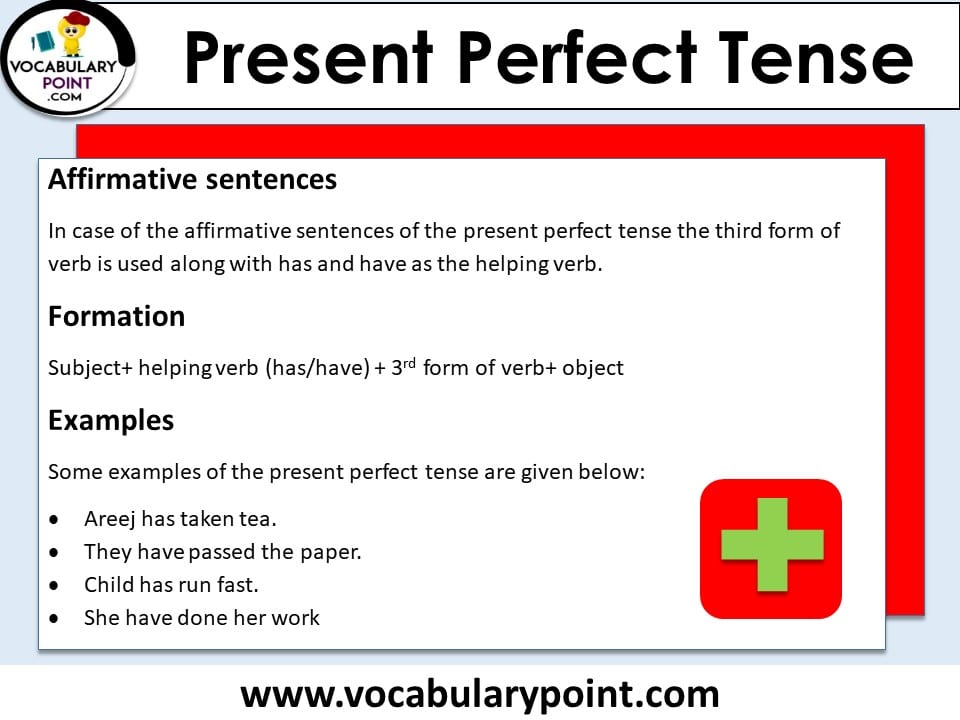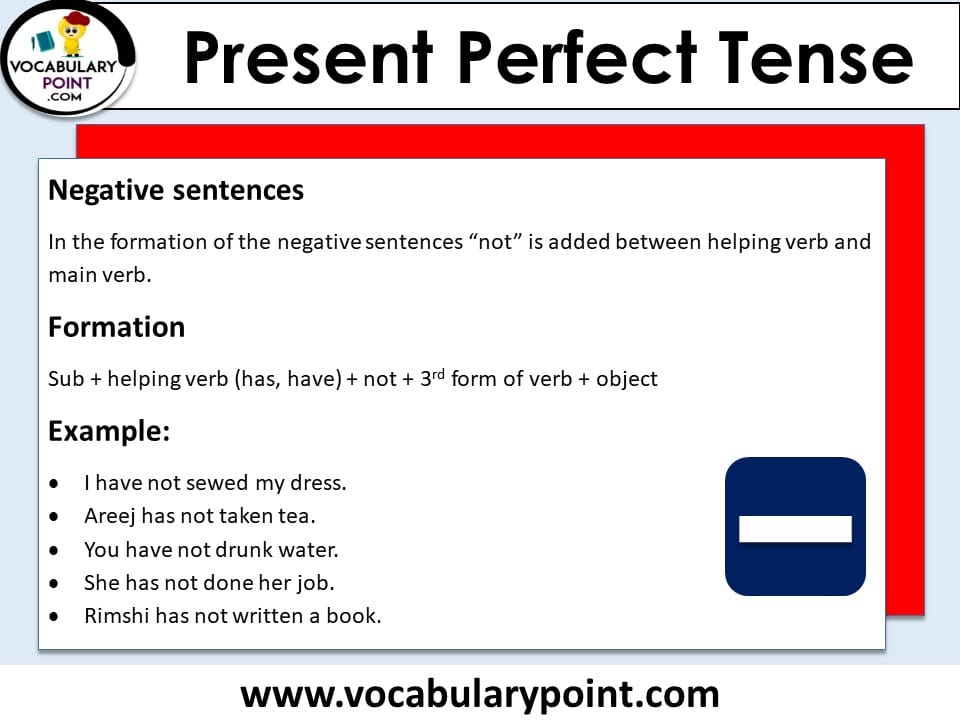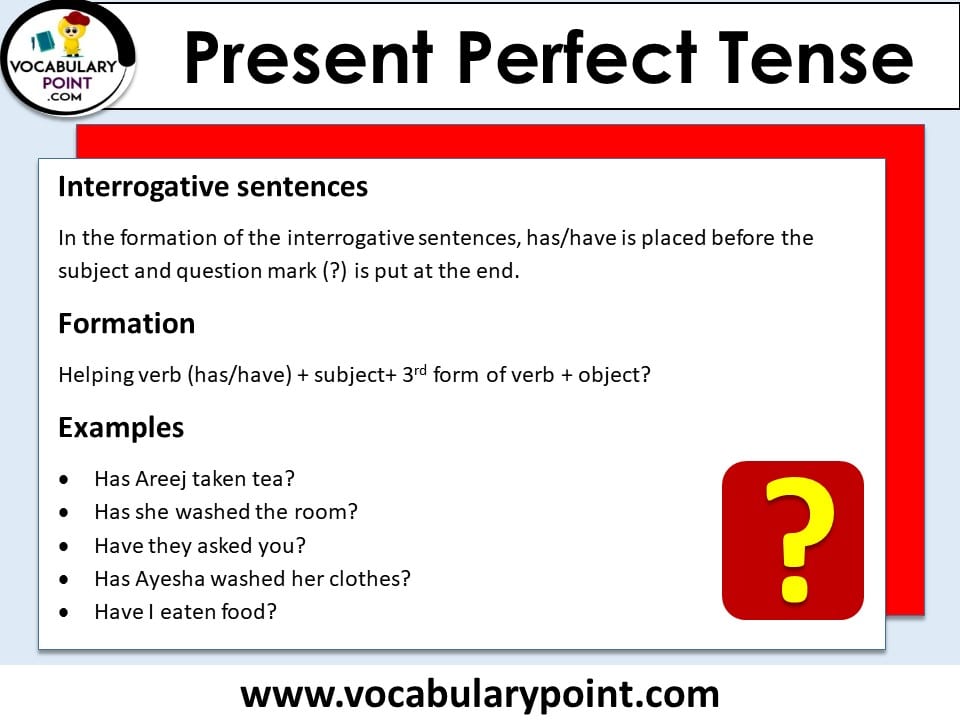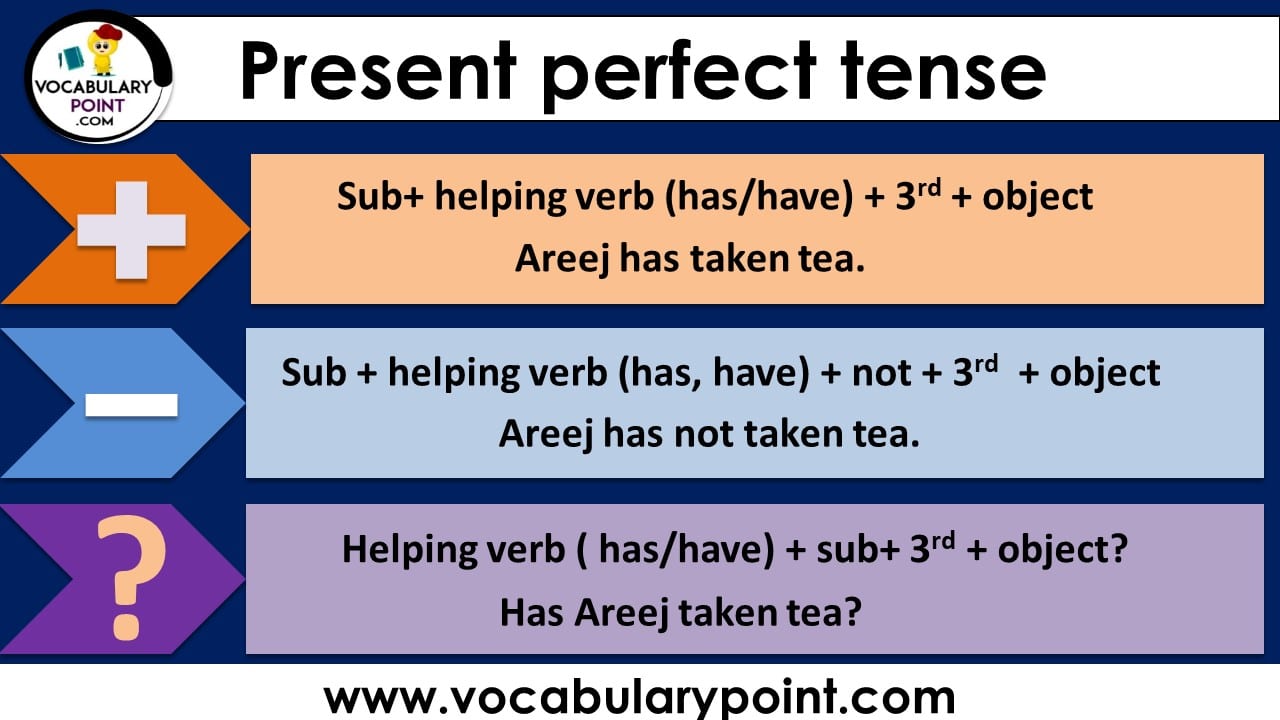Present perfect tense, examples and formation. Here all the positive, negative and interrogative sentences are explained with examples & formation. The pdf of this lesson is given at the end.
What are Present perfect tense?
The present perfect tense is a verb tense used to talk about actions or experiences that started in the past and continue until now, or actions or experiences that happened at an unspecified time before now. It is formed using the auxiliary verb “has/have” + the past participle of the main verb.
Here are some examples present perfect tense:
- She has drunk three cups of coffee today.
- They have visited their grandparents several times this year.
- The sun has risen in the east every day.
- The birds have flown south for the winter every year.
- I have studied English for three years.
- He has played soccer every weekend for the past month.
- We have had lunch together every day this week.
- She has read three books this month.
- They have walked to work every day this week.
- The train has arrived at the station on time every day this week.
- The flowers have bloomed in the spring every year.
- He has always worn a suit to work.
- The children have played in the park every day after school this week.
- I have watched two movies this evening.
- She has spoken Spanish fluently for several years.
- The company has held a meeting once a week for the past year.
- They have listened to music while driving for several hours.
- The river has flowed into the ocean for centuries.
- I have cooked dinner for my family every night for the past month.
- He has ridden his bike for exercise every day for the past two weeks.
Present Perfect Tense
In this tense “has” is used as the helping verb and third form of verb is used. This tense shows the action has been completed in present time.
Formation
Subject+ helping verb (has/have) + 3rd form of verb+ object
Related Post: Present Perfect Continuous tense
Example
- Lee has eaten meal.
- We have packed our bags.
- We have completed the task.
- I have attempted the paper.
Must read: Past indefinite Tense
Affirmative sentences
In case of the affirmative sentences of the present perfect the third form of verb is used along with has and have as the helping verb.
Formation
Subject+ helping verb (has/have) + 3rd form of verb+ object
Examples
Some examples of the present perfect tense are given below:
- Areej has taken tea.
- They have passed the paper.
- Child has run fast.
- She have done her work
- We have packed our bag.

Also read: Past perfect tense
Negative sentences
In the formation of the negative sentences “not” is added between helping verb and main verb.
Formation
Sub + helping verb (has, have) + not + 3rd form of verb + object
Example:
- I have not sewed my dress.
- Areej has not taken tea.
- You have not drunk water.
- She has not done her job.
- Rimshi has not written a book.
- They have not killed the hen.

Important Lesson: Phrasal verbs
Interrogative sentences
In the formation of the interrogative sentences, has/have is placed before the subject and question mark (?) is put at the end.
Formation
Helping verb (has/have) + subject+ 3rd form of verb + object?
Examples
- Has Areej taken tea?
- Has she washed the room?
- Have they asked you?
- Has Ayesha washed her clothes?
- Have I eaten food?
- Have we arrived park?

Download PDF
You can DOWNLOAD PDF of the present perfect tense.
